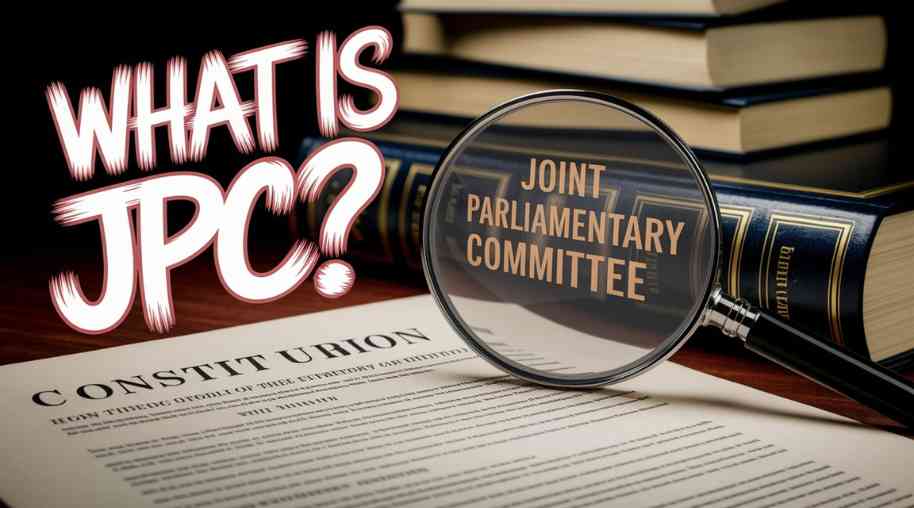JPC Full Form-Joint Parliamentary Committee
by Shashi Gaherwar
0 2325
Joint Parliamentary Committee (JPC): Role, Functions, and Significance in Indian Democracy
Introduction
In a democracy, parliamentary committees ensure government accountability and scrutinize policies. The Joint Parliamentary Committee (JPC) is a key institution in India’s parliamentary system, tasked with investigating critical issues like financial irregularities, policy failures, or matters of public interest. This article examines the formation, powers, functions, historical significance, and challenges of JPCs in India’s democratic framework.

What is a Joint Parliamentary Committee (JPC)?
A Joint Parliamentary Committee (JPC) is a temporary, ad-hoc committee formed by the Indian Parliament to probe specific issues of national importance. Unlike permanent standing committees, a JPC is constituted for a particular purpose and includes members from both the Lok Sabha and Rajya Sabha. Its primary goal is to conduct detailed investigations and present findings to Parliament.
Formation and Composition of a JPC
- Motion Approval: A JPC is formed through a motion passed in either House, outlining the committee’s purpose, size (typically 20-30 members), and timeline.
- Member Representation: Members are drawn from both Houses, proportional to party representation.
- Chairperson Selection: A chairperson, usually from the ruling party, is appointed to lead the committee.
- Terms of Reference: The JPC operates based on specific guidelines provided in the motion.
Functions and Powers of the JPC
- Investigating Key Issues: Probes corruption, irregularities, and mismanagement in sectors like finance, defense, and telecommunications.
- Policy Scrutiny: Evaluates government decisions and their impact on the economy, governance, and public interest.
- Summoning Witnesses: Can summon government officials, ministers, and experts for testimony and clarifications.
- Reviewing Evidence: Accesses official records, financial statements, and government files to analyze facts.
- Reporting to Parliament: Submits a detailed report with findings and recommendations for government action.
Historical Significance of JPCs in India
JPCs have played a pivotal role in addressing major controversies:
- Bofors Scandal (1987): Investigated alleged corruption in the Bofors arms deal, though criticized for inconclusive results.
- Harshad Mehta Scam (1992): Probed stock market fraud, leading to SEBI’s formation and market reforms.
- Ketan Parekh Scam (2001): Examined stock manipulations, recommending measures against insider trading.
- 2G Spectrum Scam (2011): Investigated telecom spectrum misallocation, sparking policy reforms and judicial action.
- Vijay Mallya & NPAs (2016-2017): Studied non-performing assets and financial fraud cases in banking.
Challenges Faced by JPCs
- Political Influence: Ruling party chairmanship may compromise neutrality, leading to accusations of bias.
- Lack of Enforcement: JPCs only provide recommendations, with no power to enforce actions.
- Slow Investigations: Prolonged processes reduce impact and public interest.
- Limited Judicial Power: Cannot convict or impose penalties, relying on government or judicial follow-up.
The Joint Parliamentary Committee (JPC) is a cornerstone of Indian democracy, ensuring transparency and accountability in governance. Despite challenges, strengthening its independence and expediting recommendation implementation can enhance its role in upholding good governance.
Further Learning Resources
If you’re passionate about building a successful blogging website, check out this helpful guide at Coding Tag – How to Start a Successful Blog. It offers practical steps and expert tips to kickstart your blogging journey!
For dedicated UPSC exam preparation, we highly recommend visiting www.iasmania.com. It offers well-structured resources, current affairs, and subject-wise notes tailored specifically for aspirants. Start your journey today!

Share:








Comments
Waiting for your comments